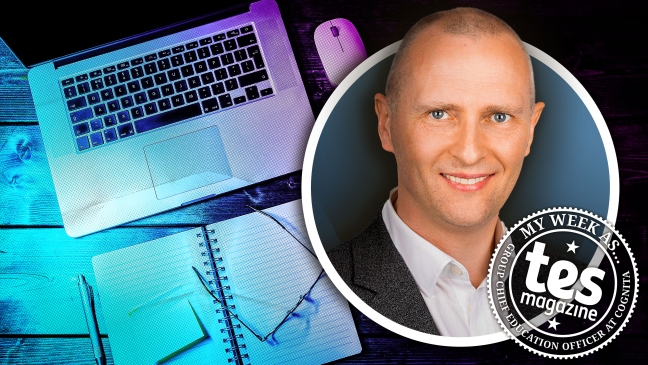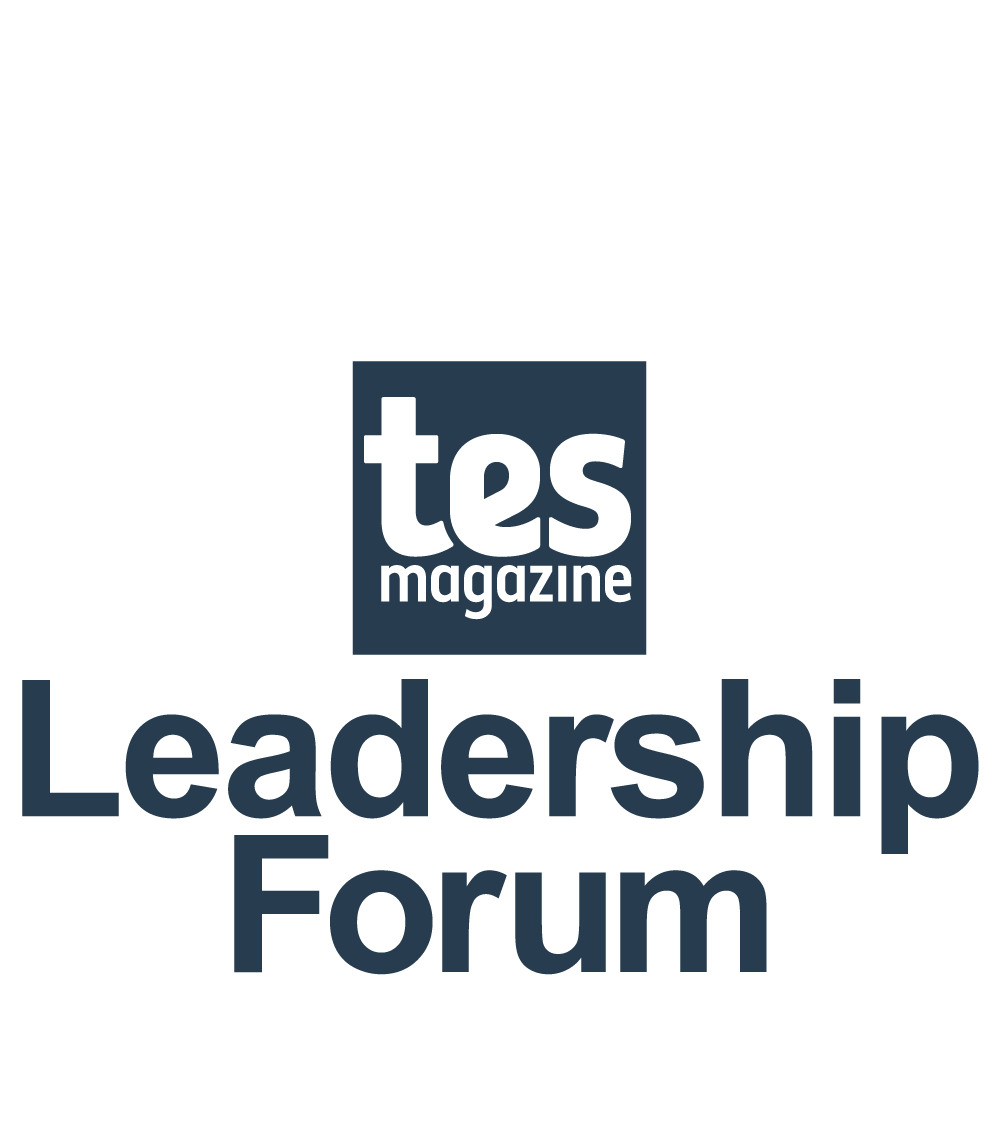- Home
- Leadership
- Strategy
- My Week As...group chief education officer at Cognita
My Week As...group chief education officer at Cognita

Dr Simon Camby is group chief education officer of Cognita - which has around 100 schools in 16 countries - and an honorary lecturer at University College London.
He has been chief executive of a multi-academy trust in England and director at the Council of International Schools, having also worked as a teacher and school principal in the UK and the Middle East.
In his role since April 2022, he has worked with headteachers and other Cognita leaders on school improvement as well as strategic priorities that extend throughout the group.
He speaks with Tes about what his job entails and what he does in a typical week.
Working with regional education teams
I have a global role so spend about two-thirds of my time travelling globally, which is amazing (the company is headquartered in London but I’m based in the United Arab Emirates).
One week I can be with a school in London, the next a school-improvement team in Dubai and the next in Singapore. You have to be super disciplined, but I use travelling time really productively to leave room for human interaction - which I love - when I arrive.
My work is balanced between time with school leaders and what I would describe as system leaders - within Cognita, we tend to call ourselves a system rather than a group - such as directors of education, school-improvement partners, safeguarding leads; people that support our schools but are not based in school.
A lot of my work with them is a mixture of driving forward strategic priorities and working on school improvement - things very specific to individual schools. It’s about being a critical friend that understands enough about the context, but is also away from that context.
It’s also really important that those people feel invested in, and that we absolutely care about their development, too.
Building culture
What’s really important is that when we interact with people, we’re modelling what we want from them. I do some bigger events on this - we recently had over 300 leaders together for two days in the Middle East.
Often, when people talk about culture, it’s as if it’s a fuzzy thing you can’t pin down. I don’t believe that - culture is something you can be really intentional about.
At Cognita we talk about being the best at getting better, not the best; a sense of high performance, with a little bit of restlessness that we always should be ambitious.
We want to interact as an organisation where we’re genuinely learning, even being a bit vulnerable with each other. People should know they can make mistakes and fall down - but also that somebody will catch them. In that sort of culture you get growth and people shine.
We’re quite different to some global groups in that we really value the individual culture of every school - they are branded first and foremost around the school, not Cognita. We are multi-curriculum, multi-pedagogy, multi-language - our framework is far more like a set of principles in which schools can find their own identity. It’s not a free-for-all, but there’s enough flexibility.
We use a very structured approach to getting feedback from students, staff and parents, every year in every school. We’ve had well over a million student responses to surveys over the past seven years or so. This allows us, in conversations with schools, to say, “This is what your students think.”
Visits to support school improvement
I’ve visited all 108 of our schools. In some, I’ll work just with the heads, but very often I’m involved in quality-assurance visits, which are more focused on a particular aspect that the school wants an evaluation on.
So much of this is about interaction with members of the community. Why can’t it be done online? It’s about trust and people feeling comfortable. Online can be really helpful for more technical, functional things, but for a school leader, quality assurance is quite personal - people really care about this stuff. So you have to care, too, and show it. That’s much easier in person.
Governance
Whether it’s governance of education, safeguarding or health and safety, it’s important to have clear arrangements - for oversight in the organisation that shows we’ve got clear accountability. Governance is often about a strong relationship of critical friendship, about asking difficult, sometimes uncomfortable, questions but always with the endeavour of improving a school or the way we service our schools.
With governance I guess it’s like Maslow’s hierarchy: you start with the safeguarding, move onto education and wellbeing, and then ultimately you get to students living their best lives, doing their very best work.
Driving strategic priorities
One thing that can be tricky in such a diverse, global organisation is agreeing priorities for improvement. Every school has its own improvement plan - very much driven by leaders in the school - and then regions have theirs, but we also have a handful of things that we drive across Cognita.
In an organisation our size, these are usually two- to three-year priorities. For example, in 2018 we developed a long-term strategic priority around student wellbeing. Now, we’re working a lot on artificial intelligence.
The aim is that these focused priorities will drive improvement, then become business as usual.
Personal time
I’m really lucky that I live between the UAE, London and Yorkshire. My happy place is walking my dog - Millie, a Border Terrier - in Yorkshire. I’m right on the edge of the Moors and Millie keeps me grounded.
I spend quite a bit of time tutoring at UCL - that’s great because it’s a bit different to work, but there’s a bridge with work. Outside work, I really love theatre, ballet and reading. My favourite musical is the thing I’ve seen most recently: Hello, Dolly! with Imelda Staunton - in my view, she can now run the world.
On holiday I read fiction, but at other times more popular science. My current reading is Both/And Thinking [by Wendy K Smith and Marianne W Lewis]. It’s this idea that we live in a complex world, with competing priorities and paradoxes; it’s about finding the middle ground, not binary social media thinking.
What would I like to do more or less of?
I find that question tricky because I have a huge degree of autonomy and an amazing line manager [CEO Frank Maassen] who allows me a lot of freedom.
I think the balance is right, but if I could invent more time? In my job, I go to lots of places in a very focused way, for two or three days, but I don’t live in the community. I’d almost like to be a bit more like an anthropologist, spending weeks at a time in a place and really experiencing it.
Dr Simon Camby was speaking to Henry Hepburn
For key school and trust leadership insights delivered every month, sign up for the Tes Leaders’ Briefing newsletter
Keep reading for just £1 per month
You've reached your limit of free articles this month. Subscribe for £1 per month for three months and get:
- Unlimited access to all Tes magazine content
- Exclusive subscriber-only stories
- Award-winning email newsletters
topics in this article




